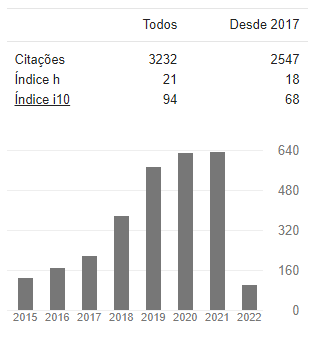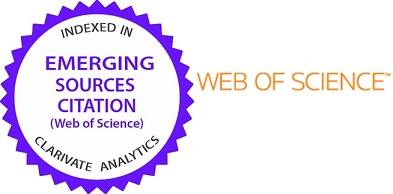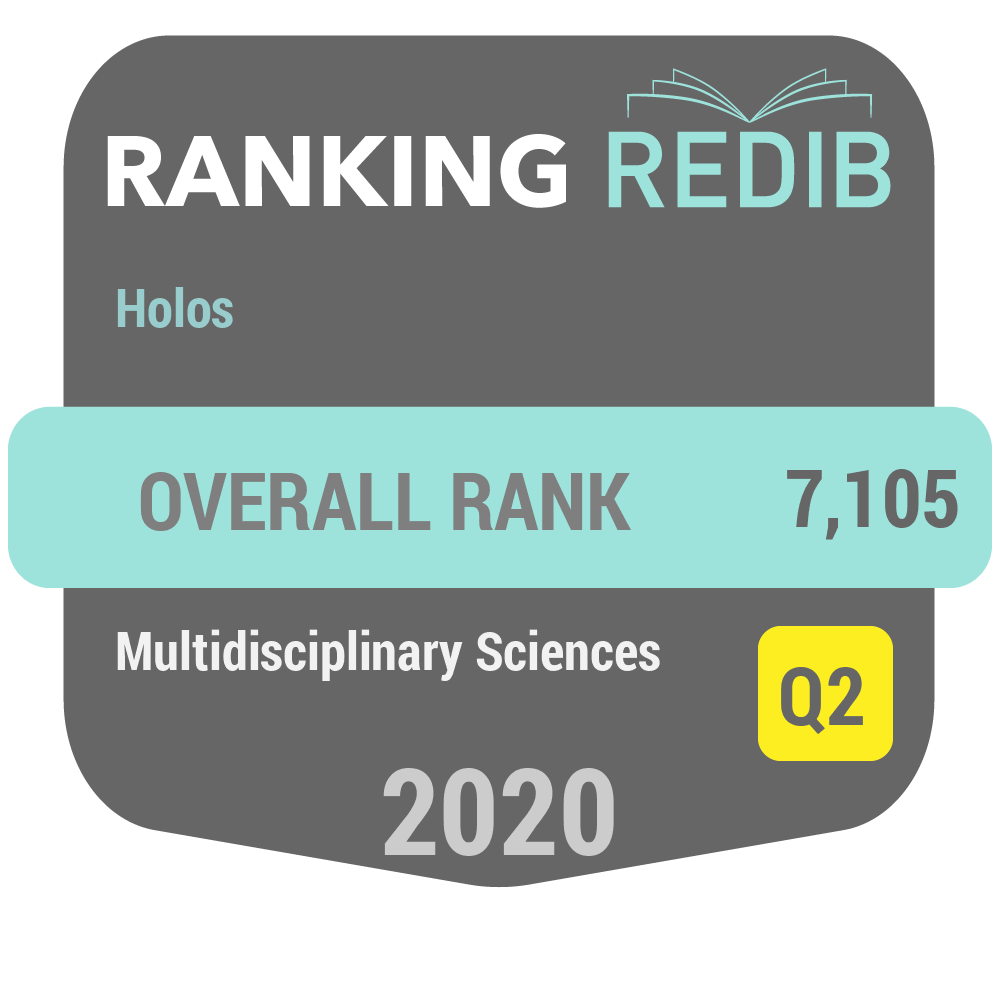RAPPORT IN POST-SECONDARY EDUCATION: A STUDY OF BRAZILIAN STUDENTS
Palavras-chave:
Rapport, post-secondary students, academic performance.Resumo
This paper aims to understand the rapport between Brazilian post-secondary students and professors and capture students’ perceptions about rapport effect in their performance. Researchers have developed a 43 questions form reaching 329 students from Brazilian post-secondary institutions. In this study, results have shown that students realize some professor's features as essential to develop rapport, as being knowledgeable, caring and funny, and behaviours such as reporting to the students using their names. The findings in this survey highlight the importance of rapport, once when students feel it with a professor, they are more motivated, more punctual, less absent in classes, spend more time studying outside the classroom and have a better academic performance.
Downloads
Referências
Battaglia, M. P. (2008). Nonprobability Sampling. In Lavrakas, P., Encyclopedia of Survey Research Methods, SAGE Publications.
Benson, T. A., Cohen, A. L. & Buskist, W. (2005). Rapport: its relation to students’ attitudes and behaviors toward teachers and classes. Teaching of Psychology, 32(1), 237-239.
Brazil, Instituto Nacional de Estudos e Pesquisas Educacionais Anísio Teixeira (Inep). (2020). Censo da Educação Superior: Notas Estatísticas 2019. Retrieved from https://download.inep.gov.br/educacao_superior/censo_superior/documentos/2020/Apresentacao_Censo_da_Educacao_Superior_2019.pdf
Buskist, W., & Saville, B. K. (2001). Rapport-building: Creating positive emotional contexts for enhancing teaching and learning. APS Observer, 14(3), 12-13.
Catt, S., Miller, D. & Schallenkamp, K. (2007). You are the key: Communicate for learning effectiveness. Education, 127(1), 369-377.
Faranda, W. T., & Clarke I., III. (2004). Student observations of outstanding teaching: Implications for marketing educators. Journal of Marketing Education, 26(3), 271-281.
Fontanini, C. A. C. (2017). The Didactic Culture in the Faculty Performance in Higher Education: The Case of a Business School in Brazil. Creative Education, 8(1), 1236-1259.
Frisby, B. & Martin, M. (2010). Instructor–Student and Student–Student Rapport in the Classroom, Communication Education, 59(2), 146-164.
Frisby, B.; Beck, A.; Bachman, A.; Byars, C.; Lamberth; C. & Thompson, J. (2016) The Influence of Instructor-Student Rapport on Instructors’ Professional and Organizational Outcomes. Communication Research Reports, 33(2), 103-110.
Gois, A. (2018, January 7). Tamanho das famílias brasileiras caiu 27,5% nos últimos 25 anos. O Globo. Retrieved from https://blogs.oglobo.globo.com/ancelmo/post/tamanho-das-familias-brasileiras-caiu-275-nos-ultimos-25-anos.html
Granitz, N. A., Koernig, S. K., and Harich, K. R. (2009). Now it’s personal: Antecedents and outcomes of rapport between business faculty and their students. Journal of Marketing Education, 31(1), 52-65.
Author. (2016). Information deleted for purposes of blind review.
Hair, J. et al. (1998). Multivariate data analysis. New Jersey: Prentice-Hall.
Hosmer, D. & Lemeshow, S. (1989) Applied logistic regression. New York: John Wiley & Sons.
Lammers, W. & Gillaspy, J. (2013). Brief Measure of Student-Instructor Rapport Predicts Student Success in Online Courses. International Journal for the Scholarship of Teaching and Learning, 7(2), 1-13.
Laporta, T. (2019, February 27). Renda domiciliar per capita no Brasil foi de R$ 1.373 em 2018, mostra IBGE. G1 Economia. Retrieved from https://g1.globo.com/economia/noticia/2019/02/27/renda-domiciliar-per-capita-no-brasil-foi-de-r-1373-em-2018-mostra-ibge.ghtml
Lederman, N. (1999). Teachers’ Understanding of the Nature of Science and Classroom Practice: Factors That Facilitate or Impede the Relationship. Journal of Research in Science Teaching, 36(8), 916-929.
Meyers, S.; Bender, J.; Hill, E. & Thomas, S. (2006). How Do Faculty Experience and Respond to Classroom Conflict? International Journal of Teaching and Learning in Higher Education, 18(3), 180-187.
Meyers, S. A. (2009). Do your students care whether you care about them? College Teaching, 57(1), 205–210.
Organization for Economic Co-operation and Development, OECD. (2015). Education at a Glance 2014: OECD Indicators. Retrieved from https://www.oecd.org/brazil/EAG2014-Country-Note-Brazil.pdf
Park, R. E., & Burgess, E. W. (1924). Introduction to the Science of Sociology. Chicago: University of Chicago Press.
Pauluze, T. & Boldrini, A. (2018, September 20). Ensino superior volta a crescer no país, mas só na modalidade a distância. Folha de São Paulo. Retrieved from https://www1.folha.uol.com.br/educacao/2018/09/ensino-superior-volta-a-crescer-no-pais-mas-so-na-modalidade-a-distancia.shtml
Rapport. (n.d.) In Oxford English dictionary. Retrieved from https://en.oxforddictionaries.com/definition/rapport
Rodriguez, J. I., Plax, T. G., & Kearney, P. (1996). Clarifying the relationship between teacher nonverbal immediacy and student cognitive learning: Affective learning as the central causal mediator. Communication Education, 45(4), 293-305.
Root, A. (1934) Student-Teacher Rapport. The Journal of Higher Education, 5(3), 133-135.
Tickle-Degnan, L., & Rosenthal, R. (1990). The nature of rapport and its nonverbal correlates. Psychological Inquiry, 1(4), 285-293.
Timpson, W. M., & Bendel-Simso, P. (1996). Concepts and Choices for Teaching: Meeting the Challenges in Higher Education. Madison, WI: Magna Publications, Inc.
Weimer, M. (2010, Oct 5). Building Rapport with Your Students. Faculty Focus Higher - Ed Teaching Strategies from Magna Publications. Retrieved from https://www.facultyfocus.com/articles/teaching-and-learning/building-rapport-with-your-students/
West, K., Hoessler, C., Bennetch, R., Ewert-Bauer, T., Wilson, M., Beaudoin, J.-P., Ellis, D. E., Brown, V. M., Timmermans, J. A., Verwoord, R., & Kenny, N. A. (2017). Educational Development Guide Series: No. 2. Rapport-Building for Educational Developers. Ottawa, ON: Educational Developers Caucus.
Wilson, J. H., Ryan, R. G., & Pugh, J. L. (2010). Professor–Student Rapport Scale predicts student outcomes. Teaching of Psychology, 37, 246-251.
Wilson, J. H. & Ryan, R. G. (2013). Professor-Student Rapport Scale: Six items predict student outcomes. Teaching of Psychology, 40, 130-133.
Publicado
Como Citar
Edição
Seção
Licença
Copyright (c) 2023 HOLOS

Este trabalho está licenciado sob uma licença Creative Commons Attribution-NonCommercial-NoDerivatives 4.0 International License.




































